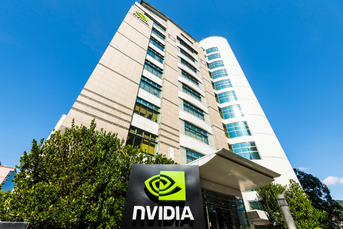Star fund managers fading as active management loses luster
The likes of famous mutual fund managers like Peter Lynch and Bill Miller may not be seen again as active management loses luster for investors. But Jeffrey Gundlach and Bill Gross can still grab headlines.
The Hotchkis & Wiley Small Cap Value Fund has returned 35% a year since the bull market began in 2009, the top-performing U.S. stock fund during the period.
Never heard of James Miles and David Green, the fund’s managers? That’s no surprise. They’re part of a group whose visibility is diminishing fast: famous stock pickers.
For decades the undisputed stars of the asset-management business, when investors such as Peter Lynch and Bill Miller were household names, stock pickers have remained largely anonymous to the larger public despite a six-year rally that produced some outstanding funds. They’ve been overtaken by bond legends such as Bill Gross and Jeffrey Gundlach and hedge fund managers including Carl Icahn and William Ackman who have waged high-profile battles against companies.
(More: Bill Gross and the dying breed of mutual fund superstars)
“When I started in this business 30 years ago, the equity managers were the well-known personalities,” said Dan Kern, president of Advisor Partners in Walnut Creek, Calif., who helps oversee $330 million. “Now the bond guys are the superstars.”
The shift is emblematic of the problems facing active stock mutual funds, which have been deserted by investors who lost money in these vehicles during the 2008 financial crisis. Subpar performance for the group since then hasn’t helped: Seventy percent of U.S. equity funds have lagged behind their benchmarks in the six years since the crisis, Morningstar Inc. data show.
‘RISING TIDE’
“When the rising tide lifts all boats, the stock pickers have a hard time distinguishing themselves,” said Jack Ablin, chief investment officer at BMO Private Bank in Chicago, which manages $66 billion.
That’s not to say the past years haven’t seen top managers. In the small-cap arena, Henry Ellenbogen’s $16.2 billion T. Rowe Price New Horizons Fund outperformed 99% of rivals over five years, according to data compiled by Bloomberg as of April 8. K. William Nolin’s $10.7 billion Principal MidCap Fund beat 97% of peers over the same period. William Smead topped 99% of competitors buying large stocks with the $1.1 billion Smead Value Fund. All beat the market, with average annual returns of as much as 20% in the five years.
None, however, have attained celebrity status of earlier generations. Mr. Lynch, now 71, became a superstar when he ran Fidelity Investments’ Magellan Fund and wrote two books that helped popularize the concept of investing in what you know. From 1977 until he stepped down in 1990, his fund gained 29% a year, almost double the returns generated by the Standard & Poor’s 500 Index.
Mr. Miller shot to fame by beating the S&P 500 for 15 straight years and saw his Legg Mason Value Trust grew beyond $20 billion in assets at its peak before his record streak snapped ahead of the financial crisis. He was the subject of a 2002 book titled “The Man Who Beats the S&P” and of a 2006 Fortune story headlined “The Greatest Money Manager of Our Time.”
“Today, you couldn’t find anyone to put on the cover of a magazine,” said Lawrence Glazer, managing partner at Mayflower Advisors in Boston. “The stock funds have no heroes.”
Mr. Miller, 65, saw investors flee after losses of 55% in 2008. The fund, now named ClearBridge Value Trust and overseen by a new team, has shrunk to $2.7 billion.
Mr. Miller, who stepped away from Value Trust in 2012 but still runs the $2.3 billion Legg Mason Opportunity Trust, has struggled to win back investors despite a performance rebound at the smaller fund. Opportunity Trust has beaten 85% of its competition in the past five years, yet its assets are down 70% from their peak.
‘BOND GUYS’
The changing fortunes of Mr. Miller’s former fund are mirrored across the industry. Since the market bottomed in 2009, investors have pulled $231 billion from funds run by stock pickers, according to data compiled by Morningstar Inc.. Bond funds, including ETFs, have hauled in more than $1.2 trillion.
Bond managers Gundlach and Gross are regulars in print and on television, opining on a range of economic and market topics. Billionaire activists Icahn and Ackman have held a high-octane debate in the financial media over the past two years on the merits of nutrition products seller Herbalife Ltd.
“The bond guys tend to talk about macro issues, which are of interest to a broader audience,” said Mr. Gundlach, the co-founder of DoubleLine Capital. “How many times can you hear a stock manager say he likes Apple?”
While deserting active stock funds, investors have added more than $1.1 trillion since the market bottom to mutual funds and exchange-traded funds that track equity indexes.
“It is hard to find someone with a long track record that has continued to outperform,” said Steven Roge, a money manager at Bohemia, New York-based R.W. Roge.
Kenneth Heebner, whose CGM Focus Fund returned 32% a year from 2000 through 2007, stumbled in 2008 and never fully recovered. His fund trailed more than 99% of competitors over the past five years.
Bruce Berkowitz was named U.S. stock fund manager of the decade by Morningstar in 2010. A repeat looks all but impossible, with his Fairholme Fund also near the bottom during the past five years.
If pressed, those who follow the fund business can name a few more managers who have sustained their performance and visibility. The list includes David Herro and Bill Nygren of the Oakmark Funds and Fidelity’s Will Danoff.
Many of the industry’s best performers in recent years, including the Sequoia Fund, and funds from Dodge & Cox and Primecap, are run by groups of managers. The team approach is the antithesis of the star system and can help limit fallout if the makeup changes.
‘INVESTMENT PROCESS’
“You want to sell an organization and an investment process, not one person,” said Robert Pozen, a former top executive at both Fidelity and MFS Investment Management in Boston.
When Howard Schow, one of the founders of Pasadena, Calif.-based Primecap Management, died in 2012, the news caused little reaction from clients and the investment community, because the Primecap managers, like many of those running team-oriented funds, have long shunned publicity. When the team was picked by Morningstar as domestic stock manager of the year in January, Primecap refused to grant any interviews.
“There are still some fantastic managers out there,” said Kern of Advisor Partners. “They are just not people who are going to jump on the couch and throw their arms in the air.”
Learn more about reprints and licensing for this article.








